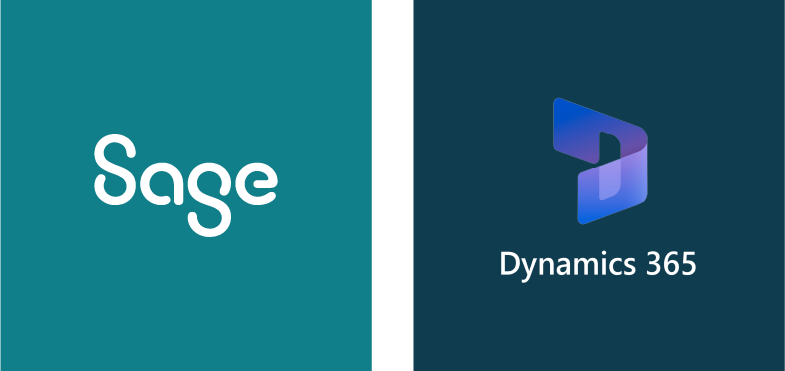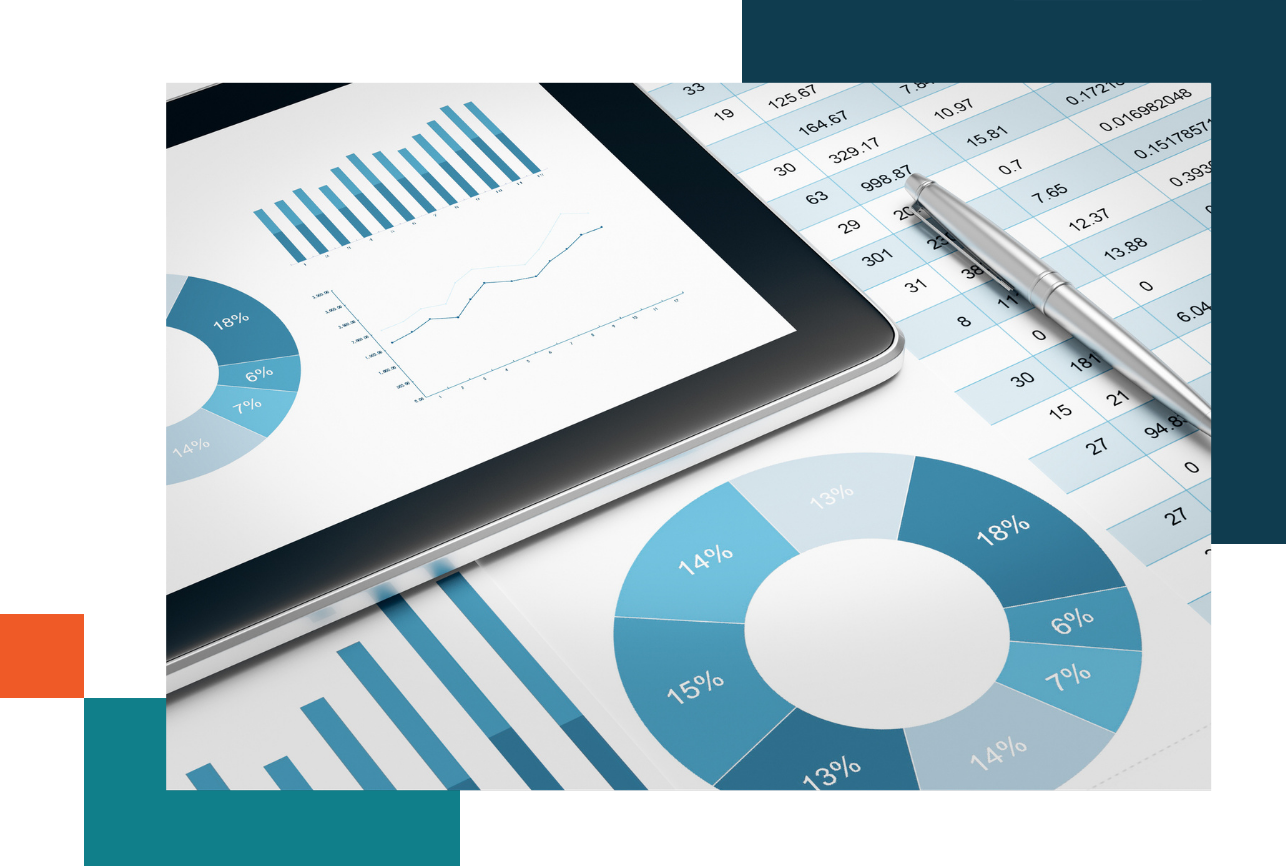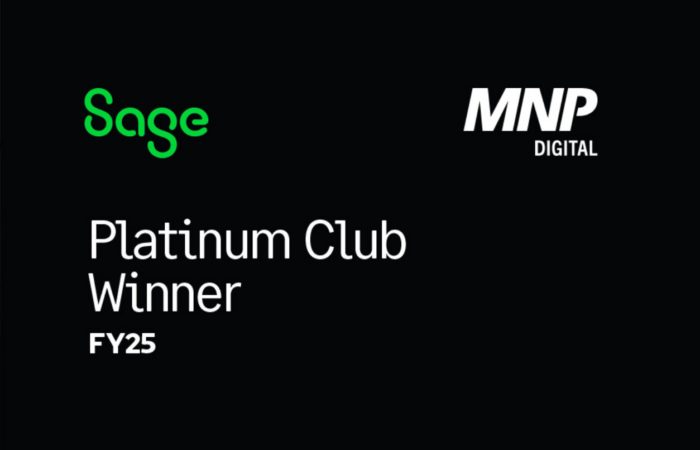You need to be agile to thrive in today’s rapidly evolving business environment. Whether you need to swiftly adapt to shifting market forces or make informed business decisions as your business grows, it all begins with 360-degree organizational insight.
An enterprise resource planning (ERP) platform can be an invaluable tool to provide visibility, enable decisions, and move from manual to automated action — yielding significant cost savings and driving superior performance outcomes. For most organizations, adopting an ERP leads to better organizational performance through its ability to integrate processes, centralize data, and optimize profit.
This guide examines the benefits of ERP across the organization with IT, finance, and operations leaders in mind. It also explores how related technologies interact with ERP platforms. Sixty percent of leading ERP vendors embed AI-driven features, which makes AI a major consideration. This guide includes supplementary resources, such as case studies, product pages, and more. Our goal is to enable a comprehensive understanding of how the right ERP can enrich your organization, and to be there to help you when you’re ready — no matter which stage of the ERP journey you are at.
If you’re already familiar with ERP platforms, and want to understand more about MNP’s solutions and implementation services, you can engage one of our ERP experts here.
Organizations leveraging ERP systems saw an average revenue increase of 10 percent within the first two years
3 Years
Companies typically achieve ROI from cloud-based ERP solutions within three years
You aren’t alone if you are considering an ERP. Over 50% of enterprises have an ERP system, with adoption driven by digital transformation efforts. Learn more about our own enterprise transformation services here.
What is an ERP?
An enterprise resource planning (is a digital platform that helps you plan, manage, and make real-time adjustments to your organization’s many inputs and outputs through a single interface. ERPs offer the flexibility you need to eliminate silos and empower leadership, IT, finance, operations, and other key groups to communicate more effectively. These solutions also enable your organization to spend and earn more efficiently and make better-informed decisions more rapidly.
ERPs are the foundation of a streamlined and fully integrated operation.
Cloud-based ERPs are now the norm for an evolving, decentralized, and increasingly remote workplace. The cloud offers virtual access to enterprise information — including the ability to track shipments, identify delays, and introduce solutions in real-time. Centralized financial and operational management ERP functions empower you to create and share documents, track and analyze statistics, manage products and inventory, or deploy human capital effectively.
Cloud-based ERPs versus cloud accounting solutions
The line between cloud accounting and ERP solutions is rapidly blurring, owing to similar functions within the financial sphere. We’ve developed this chart to help you consider which one is right for your business.
Should you consider a cloud-based ERP?
Integration with leading software, virtual access, and ease of updating are good reasons to opt for a cloud-based ERP. Most legacy (i.e., on-premises) applications don’t come with expiration dates and it’s often difficult to pinpoint precisely when they’ve stopped serving the needs of a business.
Conversely, cloud-based platforms only get better with time. Platforms release regular and automatic updates, offering cutting edge capabilities to deliver precisely what a company needs as it scales and grows.
Learn more:
How does an ERP enhance organizational performance?
Sustainable growth requires agility, productivity, and operational efficiency. An ERP and digital collaboration platform won’t just sharpen your organization’s innovation, performance, and customer service — but also its competitive edge.
ERPs are designed to consolidate your organization’s financial data and its complex web of information and moving parts. The right ERP platform yields both holistic benefits across the organization, but also specific benefits to individual leaders and particular business units.
The opportunities for AI and automation-based workflows apply across a variety of functions with multiple data sources and cross-system integrations. Below, we explore the capabilities and benefits of ERPs by department — with a particular focus on leadership, finance, operations, procurement, and other supply-chain focused teams.
Leadership
Leadership is among the primary beneficiaries of the superior visibility and holistic view of the organization and its related entities that an ERP provides. Leaders not only benefit from ERP outcomes such as cost savings and business productivity, but also from specific capabilities within their management sphere:
- Support strategic decisions: Dashboards with data sourced from multiple systems provide a holistic view of performance, enabling better decisions and planning. Additionally, automating data sourcing and reporting means it is less likely to be inaccurate.
- Scalability: Leaders gain tools to support both local and international expansion, easier integration of systems from mergers and acquisitions (M&A), and alternative revenue streams.
- Risk mitigation: AI-driven predictive analytics highlight potential risks, from financial exposures to operational disruptions. This allows for superior contingency planning and more informed reactions, when necessary.
Financial Management
Gain unparalleled visibility into your organization’s finances across multiple functions, systems, and even organizational entities (such as parent companies), to aid finance leaders and employees.
- AI-driven forecasting and planning: An ERP’s broad access to data and included machine learning-functions yields real-time insights for finance leadership. This helps support budgeting and scenario modeling with dynamically changing inputs and assumptions.
- Enhanced reporting and out-of-box capabilities to support compliance: Readily adhere to, and demonstrate compliance with, regulatory standards like SOX, IFRS, and GDPR. An ERP supports dashboards for visibility across systems, and the creation of audit-ready reports.
- Automation of routine financial functions: The automation of financial functions such as month-end close, accounts payable/receivable, and reconciliations help to reduce errors and accelerate workflows from a single system.
- Superior cashflow management: An ERP helps make cashflow management easier and more accurate with unified visibility across previously separated systems. The functions include payables, receivables, treasury functions, and more.
Operations
Streamline workflows from formerly separate systems, and drive automation to improve efficiency, save money, and produce a superior product and customer experience. To learn more about how an ERP can enhance efficiency, see how Evora Equity drove a labour-timesaving of 30-50 percent with their ERP implementation.
- Improve operational agility: Rapidly adapt to market changes or new business strategies, including introducing new product lines or adjusting to supply chain disruptions. An ERP’s versatility allows your operation greater flexibility.
- Superior workflow visibility: Centralized data provides leaders and operators with an end-to-end view of production, procurement, and logistics to make more data-driven decisions.
- Enable cross-entity support functions: An ERP serves as your operator’s view into external entities such as partners, vendors, suppliers, and more. Without an ERP, external information may either be unavailable to operations teams, or delayed in getting to them.
Procurement, supply chain, and inventory management
Get full transparency across your supply chain with a 360-degree view to identify bottlenecks and efficiencies. An ERP can help you bring products to market faster, while optimizing delivery times and minimizing costs.
- External visibility: ERPs use real-time data on inventory, supplier performance, and logistics to optimize procurement and delivery schedules. This helps improve cycle times and turnover rates.
- Intelligent maintenance: Support predictive and prescriptive maintenance practices with an ERP’s ability to proactively address potential OT failures. This helps support reduced downtime, extended asset lifecycles, and lower TCO of production equipment. An ERP also has the capabilities to equip technicians with real-time data across next-generation tools like AR and VR.
- Demand forecasting: An ERP can analyze historical data and market trends to improve demand predictions and the timing of purchases. This helps your organization minimize and avoid overstock and backorders for a superior customer experience.
- Vendor management: An ERP can track vendor performance, automate routine procurement activities, and drive supplier compliance with SLAs.
Fleet service and maintenance
The right ERP can help you manage everyday processes and seamlessly coordinate field and office teams.
- Improve efficiency: An ERP can help efficiently route crews, equipment, and service vehicles. It can help you anticipate and plan for proactive/predictive maintenance to keep your fleet in service and save on equipment TCO.
- Achieve a superior customer experience: ERPs can enable the tracking of work orders, automatically issue invoices, and confirm customer signoffs in real-time.
- Reduce administrative requirements for fleet personnel: ERP solutions centralize data for quotes, inspections, and deliveries. ERPs can also collect payments and manage transactions within a single integrated interface.
- Drive agility and flexibility: An ERP can help troubleshoot and address unforeseen challenges with centralized access to diagnostic data and systems to remediate issues.
Learn more:
Additional functions
ERPs support other functions across the organization beyond IT, finance, and operations — such as human resources, sales, and business analytics. This wide breadth-of-scope yields new opportunities for AI integration, cross-functional collaboration, and holistic benefits derived from superior visibility. Consider the implications for tools specific to these functions, such as human resources management (HRM), customer relationship management (CRM), and business intelligence (BI) systems.
- Business analytics: Many of the outcomes described above — focused on visibility, ease of reporting, data accuracy, and more — start with the business analytics function. These teams have been struggling to keep up with ever-increasing demands for data and governance parameters for new data-heavy systems. ERP’s centralized data repository, real-time reports, and AI integration can make their work so much easier, and enable them to scale.
- Information technology (IT): IT, helpdesk, and software admins stand to benefit from an ERP solution in the same ways that other cloud transitions benefit them. Implementing these solutions helps remove the burden of maintaining multiple on-premises systems and ensures accurate, timely, and automated flow between apps. Modern cloud ERPs include seamless API-driven integration functions. Additionally, ERPs provide the advantage of superior security of the single system, especially when offered by tier-one vendors like SAP, Oracle, and Microsoft.
- HR: Leaders and employees in HR functions benefit primarily from an ERP’s integration with HRM/HCM systems. They gain greater visibility into employee engagement more easily through measures from connected systems — as well as more insight into employee satisfaction and retention risks. This is supported by confluence of data across management engines for employee lifecycle, payroll processing, and benefits administration.
- Sales: Sales teams benefit directly from the integration of an ERP with CRM, inventory, invoicing, and analysis/forecasting tools. They also gain ancillary benefits of reduced churn and better partner/vendor relationships, owing to the superior customer and partner experiences an ERP can drive. Additionally, AI’s ability to automate manual tasks gives representatives more time to focus on selling, rather than on administrative duties.
Other revenue generation functions enjoy similar benefits from the implementation of an ERP, such as marketing (forecasting and pricing support). Additionally, an ERP can help support and customer service/success teams contribute to lower churn and greater customer satisfaction, even if they don’t directly contribute to your organization’s top line. These widespread benefits have a profound impact on a company-wide key performance indicator (KPI): profitability.
ERP systems enhance both day-to-day efficiency and long-term strategic capabilities by delivering tailored benefits to finance, operations, HR, IT, and leadership. Additionally, teams in supply chain management and business analytics stand out as ideal candidates for ERP adoption, given their reliance on unified, high-quality data. ERP systems empower organizations to not only address existing challenges but also uncover new opportunities for innovation and growth with modern, AI-driven features.
Did you know?
How does an ERP enhance profitability?
Spend less. Earn more. ERPs offer enhancements on both sides of the balance sheet by streamlining processes, improving communication, helping you make more timely and informed decisions, and taking automated action.
Predictive, automation, and planning tools
Make the most from your existing resources. ERPs help leadership and knowledge workers understand what the organization needs, when it will need it, and how demand ebbs and flows over time. This is most apparent in the procurement and supply-chain management functions described above. For an example from the manufacturing industry, read Five Benefits of ERP in the manufacturing industry.
Better communication and coordination
Prevent errors and costly re-work. An ERP acts as a single source of truth, providing better visibility into processes in real time for everyone in the organization.
- Break down barriers and miscommunications created through information silos
- Gain more visibility into project timing, costs, resources, and materials
- Share information more quickly and keep everyone up to date on processes, opportunities, and challenges
- Improve employee satisfaction, customer communication, and shareholder value
Adapt quickly to seize opportunities and overcome headwinds
Analyze, monitor, optimize, and uncover revenue streams to identify the best path forward for the organization.
- Seamlessly track payroll, operating expenses, and income streams
- Quickly create and share reports with key individuals and governing bodies
- Provide detailed projections based on historical data
- Monitor economic reconciliation programs and manage capital, equity, and stakeholder investments
Audit existing programs and budgets, and address the impacts of industry-specific vulnerabilities
Spend more time on tasks that drive revenue
Offloading the bulk of administrative work to an ERP allows sellers and support functions alike to spend more time on actions and activities that contribute to the bottom line. Discover how one organization reduced the time to handle accounts payable (AP) by 80 percent each month.
Improve data security and reduce downtime
Leading cloud service providers often offer better resilience and reliability with less exposure to cyber breaches or unforeseen disasters (e.g., power outage, weather events). This translates to reducing the risk of financial impact, further improving your bottom line.
Invest in technology that grows with the business
Cloud ERPs update automatically and always provide the organization with the latest available version. Organizations can save hundreds of thousands by avoiding the need to upgrade incompatible hardware and software every several years.
Considerations for key financial groups
There are a variety of ways an ERP can support profitability, growth, and other finance KPIs. Additionally, ERPs enable the automation, efficiency, and accuracy of finance-owned operations, such as planning and reporting. Finance frequently contributes to digital initiatives in support of these functions. However, these initiatives often fail to automate manual tasks and connect data sources in critical systems — resulting in data being underused and/or unsupportive of the business’s financial health.
The right ERP can provide comprehensive, flexible digital finance support by consolidating FP&A, supporting collaboration across lines of business, and making it easier to focus on high-value work that contributes to the bottom line. This example shows how one organization’s finance team reduced their monthly closing-time by 75 percent with the right ERP.
Contact us
Engage us for a funded assessment if you need help determining which systems to integrate with an ERP. Or, to learn how MNP can help source the right ERP solution, talk to one of our advisors.
How can an ERP foster innovation?
Businesses need a digital workplace that empowers employees to do their best work. An ERP effectively integrates people, processes, and technologies to produce a productive, engaged, and collaborative environment. This helps provide the right context and access to information for innovation.
An ERP helps foster innovation by:
- Integrating data, algorithms, and predictive analytics to deliver greater transparency and deeper insights. This helps improve the quality of decisions and enables teams to prepare for unexpected events.
- Equipping teams with the mobile tools and virtual accessibility to access information quickly — whether they’re at home, in the field, or at the office.
- Creating a single source of truth for everyone in the organization, regardless of their location or level of involvement.
- Leveraging financial reporting tools to soothe historic pain points and offer actionable insights on cost, service, and timeline variations.
- Automating repetitive and low-value tasks, so teams can focus on higher-value work.
- Creating an opportunity to examine existing processes and identify efficiencies.
Read our case study to see how one company gained a labour timesaving of 30-50 percent with their ERP implementation, in addition to the indirect benefits of deeper insights, rapid consolidation, and improved oversight across their business functions.
What is the best ERP platform?
You are now equipped with the basics of selecting the right ERP for your organization. In this guide, you have seen what an ERP is, what separates cloud ERP from cloud accounting, and the holistic benefits across the organization. You have also learned about the specific financial and operational outcomes an ERP drives as well as how other functional areas of the organization stand to benefit.
You have seen that the whole is greater than the sum of its parts — these benefits across so many functional areas ultimately help drive organizational-level goals through innovation, synergy, and the support of cultural change. So, how do you choose the platform that delivers the right benefits and functions for your company and its specific goals?
It’s a not a one-size-fits-all answer. There are numerous options in the market, and many offer similar functionality — however, not all solutions are equally beneficial for every business. Your best-fit ERP will deliver the functionality and scalability you need at a price point that matches your budget. However, the bigger players stand out with respect to market representation: Microsoft, SAP, and Oracle collectively make up over 60 percent of enterprise ERP implementations worldwide.
MNP recommends involving a qualified technology partner who can ask the important questions and help you make an apples-to-apples comparison of the various options available. A good partner will provide an honest assessment of your needs and point you in the right direction to maximize your return on investment. Don’t hesitate to contact us to engage a fully-funded assessment of ERP requirements specific to your organization.
Another benefit of working with a third-party technology partner is longer-term post-selection support with implementation, customization, training, and troubleshooting as necessary. This helps ensure you get the very most from whichever platform you choose. For example, MNP provides access to our Customer Success Program for existing and prospective customers considering an ERP.
How to choose the right ERP
A qualified technology partner can help you consider all relevant factors to determine which ERP would best meet your needs, including:
Making the business case for ERP
You’ve decided investing in an ERP makes sense for your organization. Now it’s time to make the business case to your key internal stakeholders.
Examples of return on your ERP investment:
- Reduced profit leaks: An ERP can help you identify efficiency opportunities and save countless hours pursuing under-performing initiatives.
- Better use of employee time: A report by McKinsey Global Institute revealed employees waste nearly 20 percent of their time per week searching for information. An ERP can save time and money by providing employees with the information they need when they need it.
- More insight from your data: ERPs can reduce the time required to locate and analyze much-needed information by more than 50 percent.
- Lower technology costs: Having one platform for the entire organization eliminates technology duplication and reduces costs like licensing fees or multiple investments in technology upgrades.
Learn more:
We can help you make the case for ERP
A capable technology adviser can help you make the business case for an ERP solution by:
- Assessing your current setup and recommending an appropriate solution
- Mapping the best path forward with the least amount of organizational disruption
- Explaining the features, benefits, and usage costs of specific tools
- Providing team training to keep the organization(s) aligned
- Creating operational governance practices to streamline and optimize processes
A technology advisor should offer tangible deliverables pre-sale. Qualified ERP professionals should present to key groups involved in the ERP decision to discuss the benefits and approach in plain language in a vendor-agnostic manner.
They should offer detailed documents, including recommendations for specific solutions that are aligned to your organization’s particular goals and pain points. Finally, they can offer specifics around the cost of solutions at various tiers, with or without professional services to support implementation. They can also provide consulting services to help you make the most of your new investment — and provide guidance on what ROI you should expect from your platform.
Streamlining the switch to a cloud-based ERP
Maybe your organization has already realized the benefits of an ERP and is ready to make the leap to a cloud-based platform. Now you need to navigate a range of privacy, security, and migration challenges — as well as upfront costs. A strong ERP implementation plan will be vital to help you navigate the numerous moving pieces and decisions around consolidation, standardization, and regulatory requirements.
Below are a few best practices to help you navigate the associated complexities and risks:
Why explore ERP platforms with MNP Digital?

MNP Digital partners with Microsoft and Sage to deliver industry-leading ERP solutions for your business. Each vendor has developed highly functional, dependable, and integrated ERP technology to effectively address a wide range of needs for organizations of various sizes and industries.
Want to learn more about a particular platform? Contact an advisor for a complimentary, in-depth assessment to find the right one for you.
Content contributors
Begin your funded assessment
An ERP platform tailored to your needs can provide lower costs, better business insights, and a greater line of sight into how your teams are functioning and how everyone contributes to your organization’s success.
Getting started is easy! Simply reach out through the contact form below and a member of our team will be happy to provide a free assessment of your needs and an overview of your options. Our teams look forward to connecting with you and finding the right solution to address your unique business challenges — we’ll be right there with you, every step of the way.
Recommend for you
Down to Business: Optimize for growth with modern financial tools
Our Down to Business series digs into how modern tools, like ERP systems, can optimize your financial and operations processes. Learn how.
Getting a complete picture of your business starts with the right technology
How can you adapt and come out ahead? For many organizations, the answer lies in using right sized technology stack that is optimized for your business.
TagArticle
MNP Digital recognized as a Sage Platinum Club for Partners Awards for driving high-performance growth and innovation
MNP Digital is proud to announce its recognition as a recipient of the Sage Platinum Club for Partners Awards for FY25.






